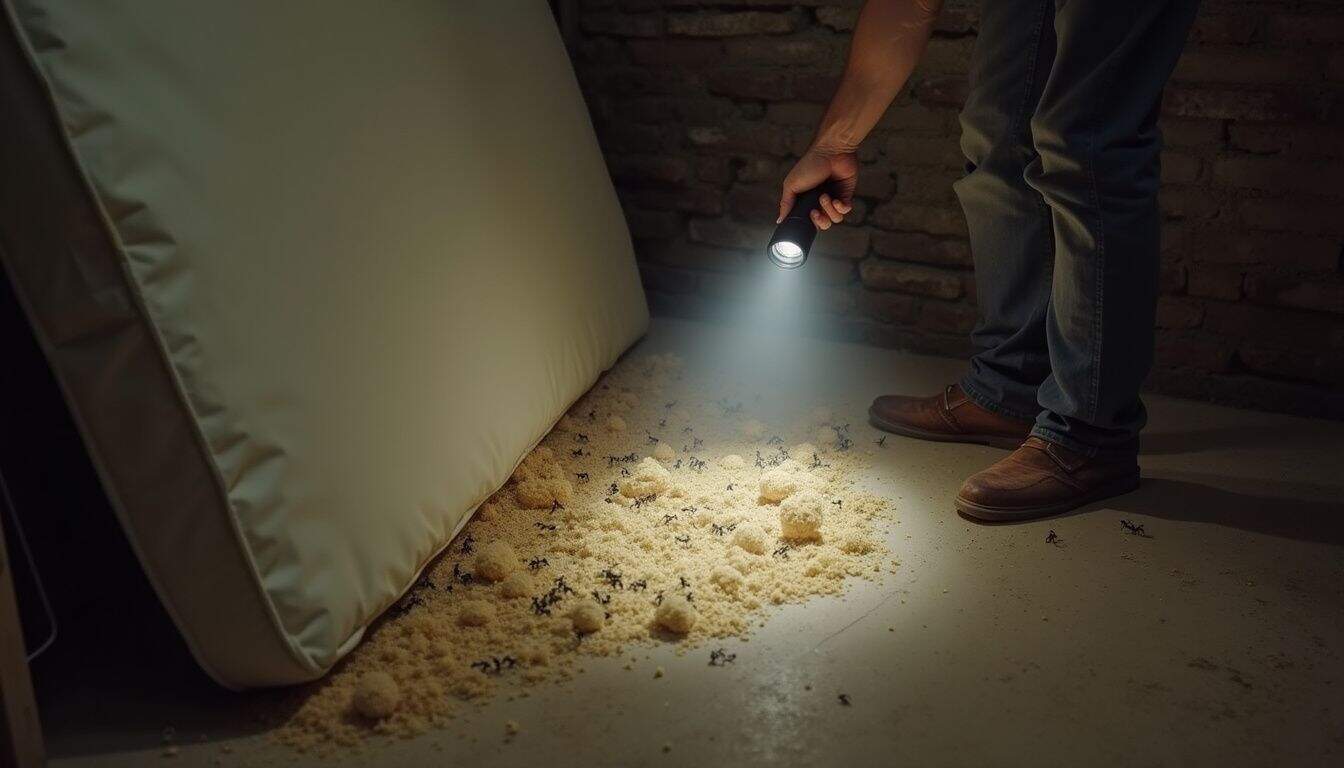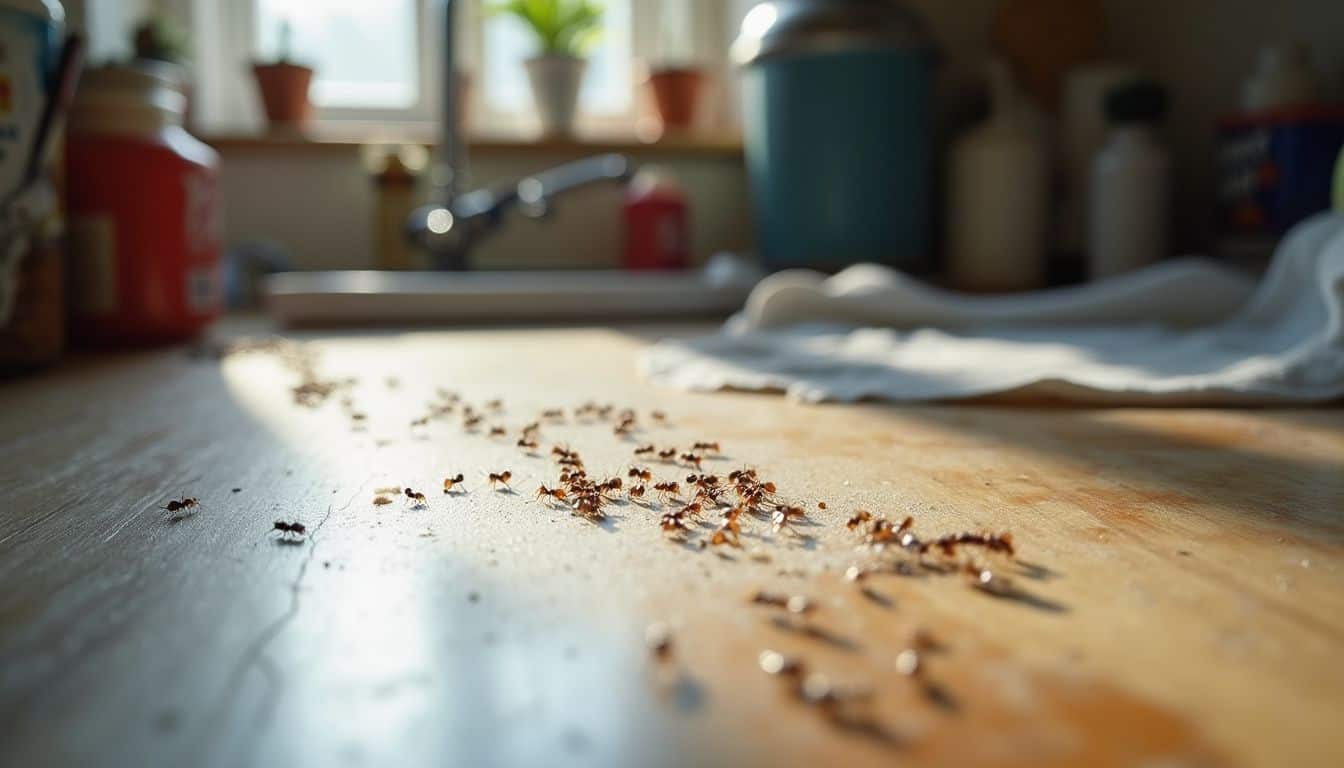You spot a line of ants in your kitchen and wonder how to keep your home pest free without the stress. You are not alone. Census data shows about 14 million homes deal with unwanted guests each year. Smart pest control starts with simple habits, like sealing cracks, using airtight containers for food storage, and dumping standing water.
This guide walks you through nine clear steps. Do a few each week, and pests will move on before they get cozy.
Key Takeaways
About 14 million U.S. homes face pest issues each year. Seal cracks and check basements, attics, and kitchens often to catch problems early.
Store foods in airtight containers and wipe crumbs right away. This removes easy meals for ants, cockroaches, and rodents.
Trim plants and mow weekly in warm months. Clear yard debris so mosquitoes, ticks, mice, and beetles have fewer places to hide.
Add weatherstripping on doors and use 20-mesh window screens to block flies and gnats from slipping through tiny gaps.
By 2025, integrated pest management will blend gentle sprays with sensors and better door sweeps, making prevention easier at home.
Table of Contents
Routine Inspections and Repairs

Walk through your basement, crawl spaces, and attic with a flashlight once a month. Look for droppings, gnawed wood, tiny holes near pipes, and shredded paper. If you see trail lines or wings, you may have insect pests like ants or termites.
If you find heavy activity near the garbage can or walls, call Hawx Pest Control for help.
Perform regular checks for pest activity

Flip mattresses, slide out the stove, and scan baseboards. I once found early ant trails hiding under my old bread box, and it saved my pantry staples like rice and flour.
In crawl spaces, watch for tiny sawdust piles from wood-boring bugs and chewed cereal boxes from mice. Keep a small bug spray ready, but use it only on active spots and follow the label. Safety first, especially around kids and pets.
Professional pest control services suggest one detailed home inspection each year, then extra checks in high-risk zones like kitchens and garbage disposal areas. Catching problems early costs less than hiring an exterminator after pests settle in.
Seal cracks and entry points

Once a year, walk the whole house, bathrooms, laundry, attic, everything. Even a gap as thin as a toothpick lets ants, spiders, or a stray bed bug squeeze in.
Use caulk for small gaps in walls, especially near pantries with grains and baking staples. For wider openings where pipes enter, switch to expanding foam. Stuff steel mesh into vents and ducts to block mice and wasps.
I found yellow jackets entering through tiny holes near my foundation last spring. Since then, I scan exterior walls often. Add door sweeps to block crumbs-seeking pests from slipping under doors, and put weatherstripping on windows to slow flies and gnats.
Older homes settle, so new cracks appear over time. Sealing first makes every other pest control step work faster.
Maintain Cleanliness

Clean spaces starve pests of food and water. Run the dishwasher nightly, wipe counters, and wash hands often. Vacuum floors and soft surfaces, including mattresses, so crumbs and hair do not become a food source.
If you use chemicals or traps, follow the label closely. Keep products away from kids, pets, and foods.
Keep your home clean and clutter-free

Make a quick cleaning loop each evening. Wipe counters, sweep crumbs, and load dishes. A crumb today can be a cockroach party tomorrow.
Take out trash often and use tight-fitting lids on cans. Shoes off at the door cuts dirt and hitchhiking ants. Do a monthly deep clean under appliances and around food prep zones. Pests love damp corners and sticky spills.
Declutter so pests have fewer hiding spots and fewer scraps to eat, like wheat bits or decomposing leftovers. Clean first, then add tools for insect control or rodent control if needed. Good housekeeping is your first line of pest eradication.
Store food in sealed containers

Open bags of cereal, sugar, and flour are an open buffet for pests. Move grains, snacks, and pet food into airtight plastic or glass containers the day you shop. This step blocks ants, roaches, and mice, and it also keeps food fresh.
Skip cracked bins, pests slip through tiny gaps. Label each container with the contents and date. A quick wipe around lids removes crumbs that attract bugs. Seal bulk buys too. Store rice and cakes off the floor and away from walls to deter sneaky nibblers.
Yard and Exterior Maintenance

Think of your yard as your first shield. Tidy landscaping and clear gutters help stop pests before they reach your door. Aromatic plants like mint and lavender can also nudge bugs to look elsewhere.
Trim plants and mow the lawn regularly

Pests hide in thick grass and tangled bushes. Mow weekly in spring and summer to reduce fleas, ticks, and mosquitoes that can carry dengue fever. Trim shrubs so they do not touch siding or windows. That removes bridges for ants, mice, and squirrels.
Keep branches off the roof. Spread mulch carefully around plants, but do not pile it against your walls. Healthy lawns resist pests better, so plan seasonal dethatching and aerating. Dethatching removes dead grass, and aerating pokes small holes so roots breathe. In humid areas, use dehumidifiers in damp sheds or garages.
Clear yard waste and debris

After pruning, yard waste piles up fast. I once let a corner fill with fallen branches and wet leaves. It turned into a motel for mice and beetles.
Clear sticks, bag leaves, and put away unused tools. Store firewood at least 20 feet from your home to reduce ant and rat nests. Rake under shrubs on a schedule. Power wash patios to remove sticky film that draws bugs.
Pull weeds from flower beds before they host an ant parade or turn into shallow pools after rain.
Routine outdoor cleaning is half the battle against pests, says Dr. Jane Porter from SafeHome Institute.
Scoop pet waste during the week so flies do not hang around your summer cookouts. These preventative measures cut the risk of pests moving inside.
Eliminate standing water

Mosquitoes love standing water. Check plant saucers, birdbaths, toys, and tarps after rain. Clean gutters twice a year so clogs do not create secret pools that attract mosquitoes and silverfish.
Tip over buckets and empty pots. Even small puddles can breed new bugs in days. Add goldfish or minnows to garden ponds so they eat mosquito larvae. Use safe, seasonal treatments if swarms build up in July.
Dry out damp basements with fans or a dehumidifier. Moist spaces pull in sneaky pests all summer.
Pest-Proof Your Home

Small barriers do big work. With the right add-ons, bugs never get their foot in the door.
Install door sweeps and weather-stripping

Add door sweeps to every exterior door to block ants, spiders, and mice. Even a 1/16-inch gap can be a welcome mat. Install weatherstripping along the sides and top of doors to seal tiny entry points.
A solid threshold strengthens the barrier against crawling pests like cockroaches. Light under the door is an open invitation,
home expert Maria Lopez says. Check these barriers each season. Replace worn parts right away to keep your year-round pest control plan tight.
Use window screens to keep bugs out

Once doors are sealed, check the windows. Mesh screens on windows and doors block flies and mosquitoes from slipping inside.
Choose screens with at least a 20-mesh size. They stop most common pests. Make sure screens fit tight without tears. Even a small rip invites gnats. Patch holes with repair kits from local hardware stores. Fine mesh is great for kitchens and bedrooms where you want extra protection without more spray.
How Will Home Pest Prevention Change in 2025?

Pest control will feel smarter and calmer in 2025. Integrated Pest Management blends prevention, monitoring, and targeted action. Expect more eco-friendly sprays and traps with fewer harsh chemicals.
New digital sensor tools can spot activity in dark corners before you do. More thorough inspections will be common because the peace of mind is worth it. Weather-resistant door sweeps and better window screens will keep gaps closed longer. Products like weather-resistant door sweeps already help tighten those weak spots.
Smart apps may flag high-risk areas that need attention, which makes maintenance easier. My own crack-sealing routine kept ants out for months. New sealants promise an even longer hold.
Keep doing the basics, even as tech improves. Seal cracks, store food in airtight containers, and drain standing water. If an infestation grows or you spot termites or bedbugs, contact professional pest control services for safe, effective help.
People Also Ask
What are the most important steps to keep a house pest free all year?
Start with blocking every crack and gap you find. Clean up crumbs right away, take out trash often, and store food in sealed containers. Fix leaks fast; pests love water more than a duck loves rain.
How can I stop bugs from getting inside during different seasons?
Check screens for holes when spring rolls around. In summer, trim bushes near your walls so critters have nowhere to hide. Fall is prime time for sealing gaps before cold weather hits; winter calls for checking basements and attics since rodents seek warmth.
Why do pests keep coming back even after cleaning?
Sometimes pests return because they found an easy meal or shelter nearby, like pet food left out or damp spots under sinks. If you miss one hiding place, it’s like leaving the front door open at midnight in July—mosquitoes will always show up.
Are natural remedies enough to control household invaders?
Natural fixes help with mild problems but don’t always win against stubborn infestations such as cockroaches or mice colonies behind walls. Sometimes you need stronger tools or professional help if things get out of hand faster than ants at a picnic table on Labor Day weekend.
References
https://www.ampest.com/blog/2025/january/the-importance-of-regular-pest-inspections/ (2025-01-31)
https://natran.com/pest-proofing-your-texas-home-a-seasonal-checklist/
https://thepestrangers.com/9-fall-pest-control-tips-prep-for-these-5-major-pests/ (2024-10-22)
https://www.foxessellfaster.com/blog/no-more-bugs-7-brilliant-strategies-for-a-pest-free-home-year-round/ (2024-08-28)
https://www.epa.gov/safepestcontrol/dos-and-donts-pest-control (2025-05-14)
https://redinational.com/how-to-safely-store-food-to-prevent-pests/
https://www.1800gotjunk.com/us_en/blog/decluttering/how-to-clean-your-backyard
https://www.lawn-and-leisure.com/keeping-your-yard-pest-free-tips-and-tricks/ (2023-08-30)
https://www.capitalpest.com/how-to-keep-your-home-pest-free-year-round-seasonal-prevention-tips/
https://callgreenline.com/10-simple-ways-to-pest-proof-your-home-year-round/
https://entomology.ca.uky.edu/ef641
https://blogs.ifas.ufl.edu/sarasotaco/2020/04/09/spring-cleaning-series-pest-proofing-your-home/
